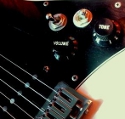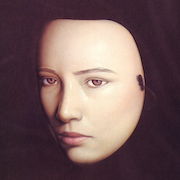|
I'm retiring my desktop and am going to start using my macbook pro for all music production duties (previously I was only using it for live performance). One thing I have to figure out is where to store sample libraries (Komplete mainly) and probably project/audio files as well. The laptop only has a 128 GB SSD, so I'm going to have to either replace the DVD drive with an internal hard drive, or use a USB external hard drive (USB 2.0). How will performance differ with different setups (i.e. 5400 rpm internal vs 7200 rpm internal vs 5400 rpm external vs 7200 rpm external)? I'm not doing multi-track recording (1 track at a time max), so I don't think that aspect will be too drive intensive.
|
|
|
|

|
| # ? May 17, 2024 19:09 |
|
Fiendish Dr. Wu posted:What is best for reducing those spikes? Find the instrument that is causing them and turn it down at those spots. Automation can work here. Also look at the waveform and listen to the spikes at those spots, how clipped does it look and how does it sound to your ears? The later is more important than the former. Compare your mix to other music tracks of a similar style, how is the volume level in comparison? Keep in mind that those tracks are professionally mastered, and it takes a really talented mastering artist/engineer to get those last few dB from a mix without killing it, so don't swing for the fences here. Get close and let your listener turn their system up just a little more if they want it louder. Or, save up $75-150 per track and get them mastered. Or cut corners and squash it yourself, and risk your mix sounding harsh and/or flat.
|
|
|
|
I'm pretty sure I'm in the wrong thread for this, but I can't seem to find the "right" one. I need to do a bunch of software tutorials for work with narration. I've brought it down to two USB microphones, but I can't decide which one would be the better choice. AT 2020 : http://www.audio-technica.com/cms/wired_mics/a0933a662b5ed0e2/ Blue Yeti : http://bluemic.com/yeti/#/desc/ I have a mic stand and pop filter already, I just need to make a choice on one of these two. Any advice would be great. Edit : I plumped for the Blue Yeti. Oh god. midge fucked around with this message at 19:30 on Feb 20, 2013 |
|
|
|
Quick question. I have a TC Electronics Konnekt 48. What I've been doing is plugging a guitar straight into it and then using amp sim software to record demos and ideas. I'm wondering if there's something I should be going through prior to the interface to get it to sound better? Like a compressor or something?
|
|
|
|
TylerK posted:Quick question. I have a TC Electronics Konnekt 48. What I've been doing is plugging a guitar straight into it and then using amp sim software to record demos and ideas. I'm wondering if there's something I should be going through prior to the interface to get it to sound better? Like a compressor or something? Shouldn't be necessary. The main thing is impedance matching (between line level and instrument level sources), and it looks like the Konnekt 48 has built-in auto-detecting instrument preamps on the front panel so you should be good there. You might want to add a few dB of preamp gain to make sure you get a good strong signal without ever clipping but otherwise you shouldn't need to do anything with the signal before it hits your amp sim software. Compressing it beforehand is a bad idea especially if you're adding any kind of overdrive or distortion, because those naturally add more compression, and too much compression will quickly suck the life out of a recording.
|
|
|
|
I've recently gone mixerless for my home studio and picked up an M-Audio Profire 2626 to act as my preamps and extra inputs to supplement my MOTU 2408mk3. What I'd like to know is if I'm merely going to be using the 2626 as a slave to the 2408, do I have to plug it in via firewire first to configure it, hook it up to the MOTU via ADAT, then unplug the firewire once I get it all slaved up? I don't have a firewire card and figured I'd just connect it with optical cables, but it doesn't seem like that's possible without first configuring it via firewire. Anyone with this interface know what my options are? I'd like to avoid buying a firewire card just to configure this thing, but if I must I guess I must. An aside, does anyone have thoughts on the relative strengths/weaknesses of firewire vs MOTU's audiowire and pci card interface? Is there anything to be lost by switching from this configuration: Profire 2626 >ADAT> MOTU 2408mk3 >Audiowire> PCI-e 424 to this configuration?: MOTU 2408mk3 >ADAT> Profire 2626 >Firewire> PCI-e 1394 card himajinga fucked around with this message at 17:20 on Feb 25, 2013 |
|
|
|
So I'm in the market for a pair of condenser mics and a pair of studio monitors. I have a few in mind for each, but I wanted to get some opinions first. For the mics, I've heard/read good things about the Studio Projects C1, and it's pretty affordable as well. Most of the reviews are incredibly positive, and a lot say that it sounds very close to a Neumann U87, which seems a little ridiculous to me given the disparity in price between the two. I've also been looking at the Shure KSM32 but that would be double the price of the C1. I don't have a professional studio and I'm not exactly George Martin, so I think there's a point of diminishing returns in terms of getting the full benefit from higher quality microphones but I'm wondering if it's worth it to pay the extra cash for the Shure over the SP. As for the monitors, I had a pair of Mackie MR5s that crapped out on me. I've looked at replacing them with the MR5mk2, which appears to be the successor to the model I have. I've also looked at the M-Audio BX5 D2, JBL LSR 2325P, and the KRK Rokit Powered 6/8 Generation 2 line. Anyone have any experience with these or can recommend for/against any model in particular? I'd like to keep it under 500 for the pair. Edit: Another monitor question - anyone know of a decent non-ported monitor that is relatively inexpensive? I think all the ones I listed have ports. Glambags fucked around with this message at 20:50 on Feb 25, 2013 |
|
|
|
This is a question regarding Ableton Live 8.2.2: I have an older desktop. As in, pretty old, meaning it only has a gig of RAM and a Pentium 4. I know that's far from ideal, but I've managed to get Ableton up and running with my USB KeyRig. I'm having some issues with particular plugins causing distorted sound, and in the Asio4All manual I read that I might need to adjust my latency settings. Being new to this sort of thing, though, I'm not quite sure what to change them to. Based on my hardware (P4, 1 gig of DDR RAM, not sure if anything else is pertinent) does anyone have any suggestions about what numbers I should try to use? Thanks in any case.
|
|
|
|
EvilJimmyCarter posted:So I'm in the market for a pair of condenser mics and a pair of studio monitors. I have a few in mind for each, but I wanted to get some opinions first. For the mics, I've heard/read good things about the Studio Projects C1, and it's pretty affordable as well. Most of the reviews are incredibly positive, and a lot say that it sounds very close to a Neumann U87, which seems a little ridiculous to me given the disparity in price between the two. I've also been looking at the Shure KSM32 but that would be double the price of the C1. I don't have a professional studio and I'm not exactly George Martin, so I think there's a point of diminishing returns in terms of getting the full benefit from higher quality microphones but I'm wondering if it's worth it to pay the extra cash for the Shure over the SP. I've used KSM32s before and they're pretty solid workhorses on a lot of sources. I have no idea what a C1 sounds like. Are you looking particularly for a U87 type of clear, forward sound? strangemusic fucked around with this message at 22:40 on Feb 26, 2013 |
|
|
|
TheMammoth posted:This is a question regarding Ableton Live 8.2.2: Live Preferences -> Audio tab -> increase Buffer Size. Some plugins are definitely more CPU-hungry so you might want to adjust the buffer size situationally, depending on what plugs you're using at the time. Also don't forget you can freeze tracks to save a lot of CPU, and many CPU-intensive plugins have a lower quality "draft" mode for when you're sketching things out.
|
|
|
|
I'm looking for a sub-$100 microphone to record a piano with (a baby grand). It seems like most piano recording setups seem to have at least 2 microphones but my budget is limited so I'd prefer something cheaper that still produces decent sound quality. Can somebody point me in the right direction? I'm not even sure what type of microphone would be best.
|
|
|
|
Hey goons -- Coursera is a website that hosts free online courses from different universities. Two new courses just started today, Introduction to Music Production and Songwriting, both taught by Berklee instructors. They both run for six weeks and are completely free: Introduction to Music Production Songwriting I'm signed up for both and am really looking forward to them (the first set of lectures are now live, I haven't gotten to take a look at them yet). loving go learn something!
|
|
|
|
h_double posted:Hey goons -- Coursera is a website that hosts free online courses from different universities. Two new courses just started today, Introduction to Music Production and Songwriting, both taught by Berklee instructors. They both run for six weeks and are completely free: Nice. Signed up for ItMP. I've been spending a lot of time going through youtube looking for some good tutorials and have been learning a lot, but I've been really wishing I had the money to sign up for a real course some time so this is perfect. edit: this is amazing. I also just signed up for Intro to Guitar starting Apr 22nd. I've played for years but never taken a real class. It's going to be really hard for me not to not forget about my real college courses (international relations right now - uggh) Fiendish Dr. Wu fucked around with this message at 14:25 on Mar 2, 2013 |
|
|
|
http://xiph.org/video/vid2.shtml This is an excellent video explaining the basics of sample rate and bit depth in digital audio. It shatters some commonly held beliefs of the limitations of digital audio. E: http://www.youtube.com/watch?v=cIQ9IXSUzuM crimedog fucked around with this message at 20:03 on Mar 7, 2013 |
|
|
|
[ ]
Nephzinho fucked around with this message at 21:41 on Dec 10, 2015 |
|
|
|
This might be more appropriate for A/V Arena, but does anyone know of a waterproof or resistant voice recorder that would work for recording in the shower? Seems like this should be possible since there are things like shower radios, but I've been having more trouble than expected trying to find one.
|
|
|
|
It's pretty standard practice to rubber-band an unlubricated condom on a regular microphone and put it underwater. Condoming a Zoom or whatever would probably work fine, obviously you lose some high end and it sounds kind of muffled but you're starting in the shower to start with so... e: this is also how you bury mics and wireless transmitters in theater costumes and not have them go out from sweat ChristsDickWorship fucked around with this message at 23:39 on Mar 11, 2013 |
|
|
|
wixard posted:It's pretty standard practice to rubber-band an unlubricated condom on a regular microphone and put it underwater.  In other news: SM57 owners, you should consider removing the transformers from your mics. I can post a brief guide, but I did one today quite easily, and it's very nice. Less midrange rasp, more lows and clearer highs. The trade off is that you lose about 10db of output level.
|
|
|
|
Seventh Arrow posted:arps, moogs, mellotrons, all that cool stuff from those old Return To Forever and Genesis records. http://www.arturia.com/evolution/en/products/v-collection/intro.html
|
|
|
|
Hogscraper posted:Get this and don't look back... Thanks for the recommendation. It is a bit pricey, but when I get home from work I'll check out the demos...if it seems good enough, I may try to save up for it. Maybe it'll come with a free nehru shirt and throw rug 
|
|
|
|
What are the behringer condenser mics like compared to say, an SM58 for vocals? I've had bad experiences with behringer stuff being cheap nasty and breaking but what would you recommend for some demo quality voice recording?
|
|
|
|
LordPants posted:What are the behringer condenser mics like compared to say, an SM58 for vocals? I've had bad experiences with behringer stuff being cheap nasty and breaking but what would you recommend for some demo quality voice recording? An AT2020 is a well-regarded condenser in a similar price bracket. Keep in mind that the SM58 is a dynamic mic, which is a fairly different creature from a condenser. Condensers tend to be more sensitive, have a flatter frequency response, and stronger high-end response compared to dynamic mics (though the frequency response of the SM58 is well-suited to vocals). They are both useful mics, but for recording vocals in a studio, if I could only have one mic, it'd definitely be a large diaphragm condenser; they're more versatile and easier to work with in that area (on the other hand, for live sound or micing high-volume instruments or amps, a dynamic might be a better choice). Do remember that condenser mics need to be plugged into a mixer or interface with phantom power -- most stuff these days has phantom power built in but it doesn't hurt to double check.
|
|
|
|
strangemusic posted:
Only other thing is you make your SM57 susceptible to being blown up by errant 48V, if you're not careful. Me, I'd just buy a Beyerdynamic M201, but that's just me.
|
|
|
|
Can anyone recommend a decent (ideally sub-$100) microphone for recording piano? Is it even possible for a single mic to be adequate or do you need at least a 2-mic setup?
|
|
|
|
Ron Don Volante posted:Can anyone recommend a decent (ideally sub-$100) microphone for recording piano? Is it even possible for a single mic to be adequate or do you need at least a 2-mic setup? I would never record a piano in mono, but if you are that limited check out the AT2020 that has been discussed on this page. It's a great all-purpose condensor mic on a budget. Don't skimp on the cables either.
|
|
|
|
Ron Don Volante posted:Can anyone recommend a decent (ideally sub-$100) microphone for recording piano? Is it even possible for a single mic to be adequate or do you need at least a 2-mic setup? Mid/Side recording is incredible for piano, it does however require 2 mics and one of which must be figure 8 capable. Barring that I would try the AT 2020 or something similar. Do you have a good MIDI controller? If I had the choice between a $100 mic and a MIDI controller and half decent patch, I would do MIDI every time.
|
|
|
|
You can also put a mic inside of the lid. It's the easiest way to mic a piano but you may not like the sound (then again you may love it  ). Any decent large condenser will work for that. ). Any decent large condenser will work for that.
|
|
|
|
Does anyone here have any experience with the Sontronics STC-3X?
|
|
|
|
Recording a piano is literally one of the most difficult things you can do as a recording engineer. There is virtually no way to stereo mic a piano within 6ft of the strings and have the mics completely in phase at all frequencies (and the piano is active at pretty much every frequency you can hear). If you put the mics farther away, you need to be in an awesome room. If you don't trust your ears and generally consider yourself a good recording engineer, I would start auditioning virtual instruments. That said, if you want to record a piano I would do it mono to start with, especially if you can't afford $2000 worth of mics. Grand pianos don't actually sound that great panned wide stereo, and you'll never get enough isolation from an upright to call 2 mics "stereo." Pianos are generally mic'd high and low if you put mics close to the strings, but that isn't necessarily for stereo image, it's to give you some control over the mix. The only reason to tape mics under the lid is if you're working with a grand piano live and need the isolation. Otherwise, the lid on a full stick is your best friend because it's a sounding board for the entire piano. With only 1 mic on an open piano, you often have as much luck pointing the mic at the center of the lid than down at the center of the soundboard. edit: For reference, here's a couple of samples from a show I just mixed with a gorgeous Steinway piano. The recording guys were apparently doing OK with the pair of AKG 414s I taped under the hood so I didn't mess with them, but I hate how the piano sounds in this mix. Maybe 60-70% of the keys really sound right IMO, my light panning (like 30% each way to get them off the vocal) ended up skewing the whole image right a bit. This is my live boardfeed, I'm mixing on a PA system not monitors so it's not perfect (lol @ the trumpet player who played his solo off-mic in the first track) but have some semi-competantly recorded grand piano: 1 - 2. The first is what the whole show was (it was Paul Byrom of Celtic Thunder fame) and the second was the only instrumental with Phil Coulter playing piano on a song he wrote, instead of conducting the orchestra like he did most of the evening. ChristsDickWorship fucked around with this message at 18:55 on Mar 25, 2013 |
|
|
|
Those clips sound great. Just chiming back into reiterate that pianos are incredibly difficult. I'm sure those clips sound as good as though for several reasons 1. great player 2. amazing instrument 3. I'm sure it had been expertly tuned just hours earlier. I'd love to live in a world where I had just one of those things going for me. Also 4. Great engineering.
|
|
|
|
HollisBrown posted:Those clips sound great. quote:I'm sure those clips sound as good as though for several reasons 1. great player 2. amazing instrument 3. I'm sure it had been expertly tuned just hours earlier. I don't think that mix is garbage, I'm actually really impressed with how the strings came out with clip-on mics (but not just any clip-on), I just hate how I hear what I want the piano to sound like. It's pretty good on the heavy-handed stuff in the instrumental, but the other piano player does a lot of subtle stuff that just kind of gets lost in a phasey soup without the attack to define it. I feel like you should be able to follow what he's doing a lot better in the song with the vocal, although I also know some great piano players love to hide in arrangements as much as possible.
|
|
|
|
I'm thinking about just spending the whole summer playing and recording my own music, but I lack a few things ; Microphones and everything that goes with it! What I'm looking for is microphones that are capable of recording drums&vocals, 1 for kick, 1 for snare, 1 for vocals and 2 for overhead. Since I'm on a pretty tight budget (I'm thinking of spending roughly €450) my options are limited, and I'm essentially looking for off-brand microphones that are still decent enough for not recording complete garbage. I'm also looking for a soundcard/mixer that can record 4 channels, which I'm afraid is going to have to be included to my already limited microphone-budget. So what I'm asking for is both gear recommendations and whether this is viable. I think I could possibly go with only three mics as well, with 1 overhead, 1 vocal and 1 for the kick. Thank you for reading this, any help is much appreciated!
|
|
|
|
Greggster posted:I'm thinking about just spending the whole summer playing and recording my own music, but I lack a few things ; Microphones and everything that goes with it! What I'm looking for is microphones that are capable of recording drums&vocals, 1 for kick, 1 for snare, 1 for vocals and 2 for overhead. Since I'm on a pretty tight budget (I'm thinking of spending roughly €450) my options are limited, and I'm essentially looking for off-brand microphones that are still decent enough for not recording complete garbage. Get a couple Shure SM57s for the snares/overheads/vocals, and a halfway decent kick drum mic for the kick. a lotta famous recordings use SM57s for the drum mics, and you can pick them up for less than $100 USD easily (don't be afraid to buy them used, they pretty much never break).
|
|
|
|
Greggster posted:I'm thinking about just spending the whole summer playing and recording my own music, but I lack a few things ; Microphones and everything that goes with it! What I'm looking for is microphones that are capable of recording drums&vocals, 1 for kick, 1 for snare, 1 for vocals and 2 for overhead. Since I'm on a pretty tight budget (I'm thinking of spending roughly €450) my options are limited, and I'm essentially looking for off-brand microphones that are still decent enough for not recording complete garbage. This will get you started for microphones. I have the upgraded kit with 57s and a 52, which worked really well. The quality of the product in the first link is undoubtedly cheaper in every sense, but since it's Shure, it's likely re-sellable to the point of your getting at least 50% of your money back. Those skinny condensers will need phantom power, but will sound "nice" (icepick-y and sparkling highs) for vocals, so maybe get a cheap ~80£ Behringer 6-channel mixer, bounce it all down to a single output while tracking, for example, the drums, and shove that into some lovely stock soundcard that you likely already have. This will teach you the significance of summing your entire project while tracking it, pre-amp sweet spot crap that likely doesn't matter at this level of gear or your level of experience, and a lot of other stuff that won't make a difference for the same reason, but at least it will definitely serve as an important introduction to these sorts of concepts. For (more or less) zero latency, plug the output of your soundcard into an input on the mixer, and monitor everything - whatever you're recording, to whatever you're playing (be it a metronome, previously recorded tracks, &c.) - on headphones plugged into the mixer itself. This will teach you how properly to route tracks through a mixer, which is a skill anyone who wishes to be a "sound man" for a live venue (or an engineer in a music studio) must possess.
|
|
|
|
OK, so I got my Terratec Phase 88 Rack FW working with an old PC. Everything seems in pretty good order and we've also got a bunch of not so lovely microphones (SM57, SM58 and an Oktava condenser) for recording in our practice space. The plan is to try and record tracks with good enough quality that can be sent to someone to work on in a real studio. The question is, how important are microphone preamplifiers in this scenario? Should I be worried that I've only got the two in the Terratec card and two more in my M-Audio Fast Track Pro? If yes, then what is a good (cheap) preamplifier to use in this scenario? Here's a link to some text about the Terratec card: http://www.soundonsound.com/sos/may05/articles/terratec88.htm
|
|
|
|
HotCanadianChick posted:Get a couple Shure SM57s for the snares/overheads/vocals, and a halfway decent kick drum mic for the kick. a lotta famous recordings use SM57s for the drum mics, and you can pick them up for less than $100 USD easily (don't be afraid to buy them used, they pretty much never break). Yeah if I ever get any sm57s it'll be used, found a dude who sells them for ~$60 so maybe I'll invest in a few of those 
|
|
|
|
Schlieren posted:This will get you started for microphones. I have the upgraded kit with 57s and a 52, which worked really well. The quality of the product in the first link is undoubtedly cheaper in every sense, but since it's Shure, it's likely re-sellable to the point of your getting at least 50% of your money back. Looks like a nice little package there, I'll try and find a box that's used so that I can save up on some cash! Maybe a mixer like this? http://www.thomann.de/se/behringer_vmx_1000_usb.html Friend of mine is selling it and he'll sell it for roughly €80, checked it out and it does seem nice with plenty of channels for recording drums, usually I only record with 2 oh and kick/snare plus a piezo microphone on the kick so essentially that should be just what I need. Anyone used that behringer kit who can tell me if it is any good? any drawbacks? Thank you both for the quick and informative answer, helps a lot!
|
|
|
|
Apologies in advance if this has already been covered ad nausea. I've been using an Mbox 2 Mini as my interface and its worked fine, more or less. However I don't really have anything in the way of a MIDI interface. All I have for that is an M-Audio MidAir 25 wireless keyboard. I don't know if the MIDI > USB interface will work with other MIDI devices though. I'm looking to get some new interface equipment, and I would appreciate some suggestions. My only requirements are: 1) Portability. I need to be able to toss it in a backpack with my Macbook Pro for when I go to my buddy's place to record his v-drums. 2) Minimal inputs. I only need 1-2 inputs at a time. This includes audio and MIDI. 3) Mac/OS X compatible 4) sub-$200 price Also, would I be better off only using 'class compliant' devices? I'm so tired of never being able to update my OS because the interface manufacturer is slow to roll out driver updates. Thanks! EDIT: Looks like I'm looking into either the PreSonus AudioBox USB or the M-Audio M-Track. Any red flags on the devices? Venkmanologist fucked around with this message at 01:54 on Apr 3, 2013 |
|
|
|
I just learned a really simple but useful tip for learning to EQ better. Load a track up with white noise and stick your favorite parametric EQ on there. Turn on a single band as a bell filter with a narrow Q and the boost turned all the way up. Now you can sweep it back and forth through the spectrum to do EQ ear training, to get a very clear sense of what specific frequencies sound like in isolation. Next, do the same thing with a narrow notch filter so you can hear what specific frequency CUTS sound like in isolation. White noise contains all frequencies in equal amounts, so this is a quick illustrative way to effectively look at a pure colored swatch of "orange", rather than just learning "orange is the color that tigers are", which seems to be the usual approach to learning to EQ specific instruments.
|
|
|
|

|
| # ? May 17, 2024 19:09 |
|
Venkmanologist posted:EDIT: Looks like I'm looking into either the PreSonus AudioBox USB or the M-Audio M-Track. Any red flags on the devices? M-Audio stuff is kind of meh and I've heard mixed things about the AudioBox USB. Have you looked at the Focusrite Saffire 6? That seems to be the local favorite for a well-built interface in that price range, and it's got MIDI I/O.
|
|
|






































